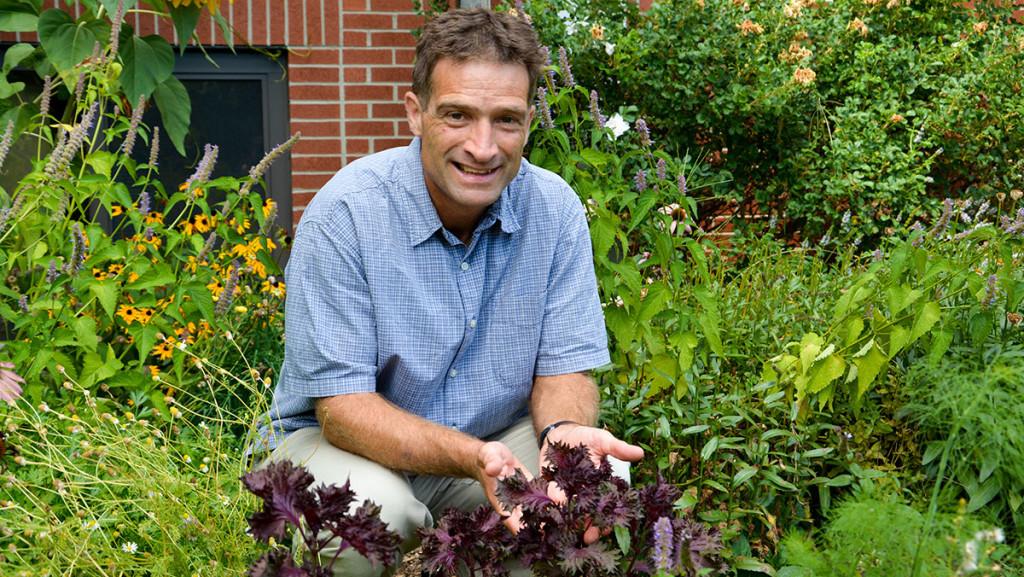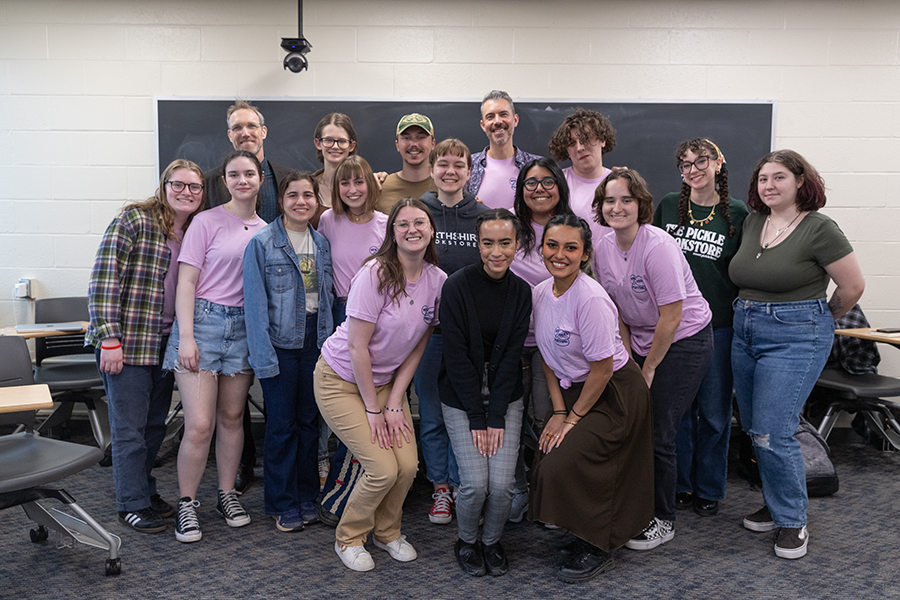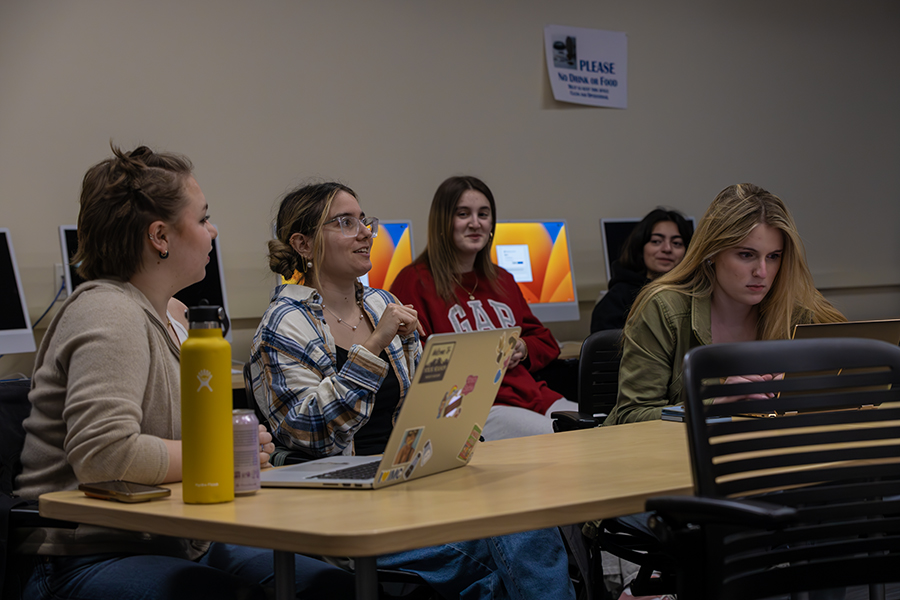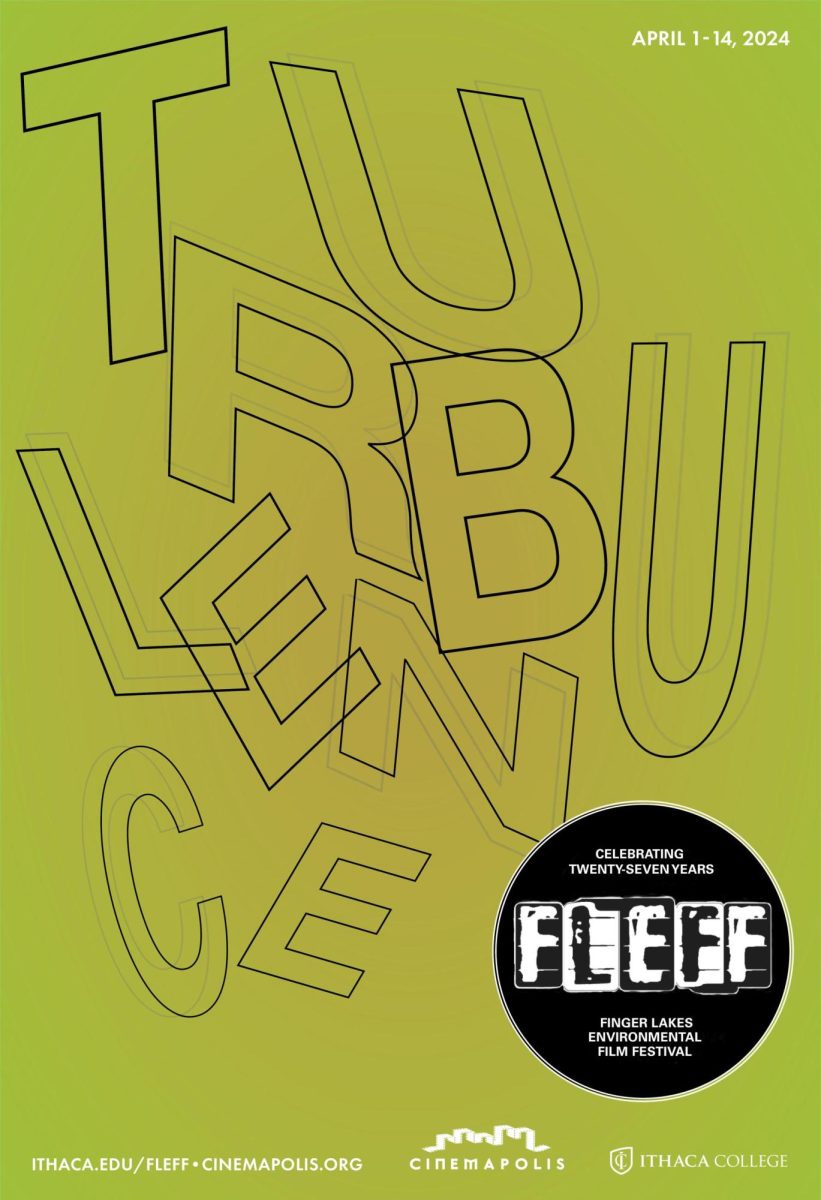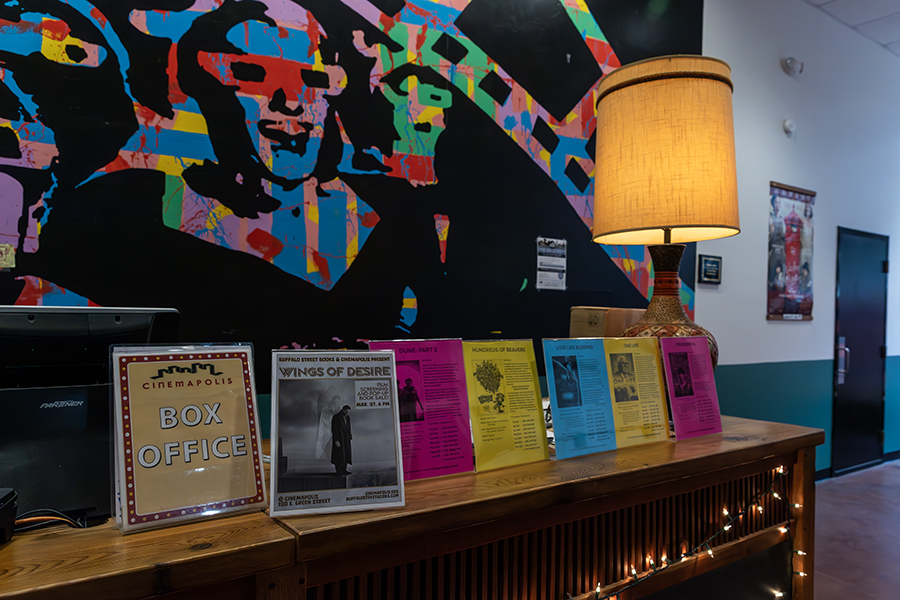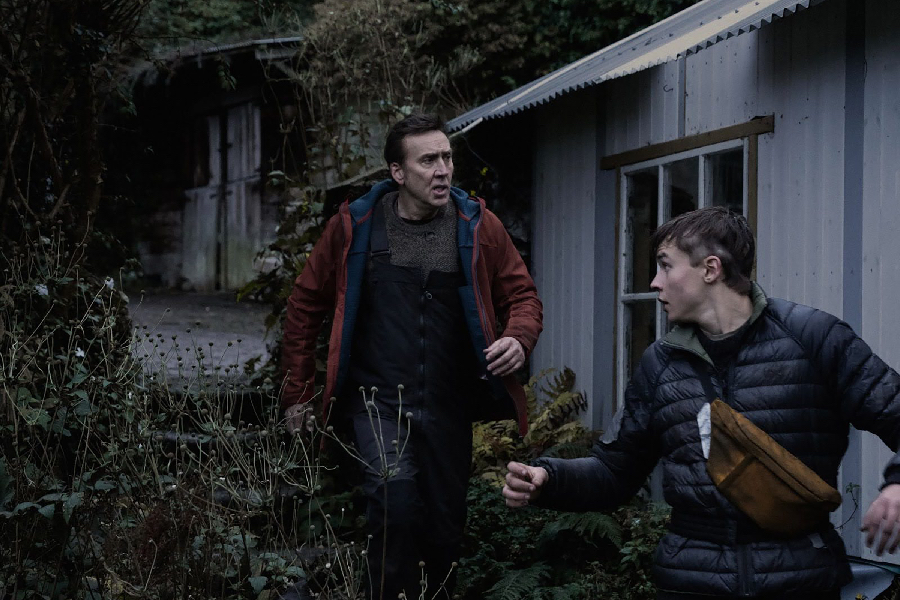Tall, towering sunflowers; coneflowers with lazy, soft, purple petals; vining, hardy kiwi; and many other types of plants add splashes of color to the brick walls of Williams Hall. Far from simply being pretty, the variety of plants works together to form a permaculture garden, which is a collection of plants that are self-sufficient and agriculturally productive, mimicking the natural ecosystem of an area.
The permaculture garden is one of two plots at Ithaca College that produce food with minimal impact to the environment. In an obscure location, past the facilities building and through the woods, sits the college’s organic garden, which uses no unnatural chemicals to treat the plants. The organic garden is curated by Organic Growers of Ithaca College, a student organization founded in 2008 that cares for the medicinal plants, culinary herbs, flowers, vegetables and other plants found in the garden. The produce harvested from the gardens is shared among food pantries downtown, those who work in the garden and a small Community Supported Agriculture program of faculty and staff at the college, according to the Organic Growers’ website.
Michael Smith, associate professor in the Department of History and faculty member of the Department of Environmental Studies and Sciences, worked with Karryn Olson-Ramanujan, a lecturer in the Department of Environmental Studies and Sciences, in Spring 2012 to develop and implement the permaculture garden.
Smith said the permaculture garden was, in part, created as a tool to show the college alternative landscapes.
“Our goal always was that this would be a demonstration site that would hopefully encourage the college to develop more places like this on campus,” he said.
Senior Rebecca Kaebnick, one of five students who worked with the organic garden throughout the summer in preparation for the fall semester, said the college has greatly expanded the gardens and plans to continue to do so. Because of inaccessibility to the garden, she said the team is planning to move the organic garden to a better location during the coming year.
“Our specific plan is that we are moving the garden on campus,” Kaebnick said. “We want to move it to the woods behind facilities. And we now have permission to move it there, so we will be planting that and starting a budget for it.”
Kaebnick said working in the gardens on campus is for anyone who is interested in gaining new skills and meeting new people. The gardens were created by students for students in an attempt to enrich campus life, and the team stresses that anyone can get involved, Kaebnick said.
“A big part of what we are about is learning,” Kaebnick said. “It is about production … so while we are producing things, the point is they learn how it works.”
Richard Gaunt, a senior environmental studies major, worked with the summer team as well. He said he sees the organic garden as a great connector throughout campus.
“It’s tying together all areas of the campus,” Gaunt said. “In the past, the garden has really been viewed as an environmental studies thing, but now we have English and sociology represented, and we want to get people of all departments, all schools and all majors involved.”
Both gardens are being used in a handful of classes on campus, including a nutrition class and a permaculture class, to reinforce sustainability themes and to help students visualize where food comes from.
“There are several different projects going on,” Kaebnick said. “Richard and I are working with a sociology class about global food systems, and we are going to tie in to the garden and show people how food is produced.”
The garden is not just a place for learning, but is also a place to socialize, senior Katie Malnati said.
“My favorite part about working in the garden is spending time with friends and learning about plants and having the reward of being able to eat the food that we grow,” Malnati said.
For more information on the garden and how to get involved, stop by the Fall Open House from 5–7 p.m. Sept. 5 at the organic garden.


